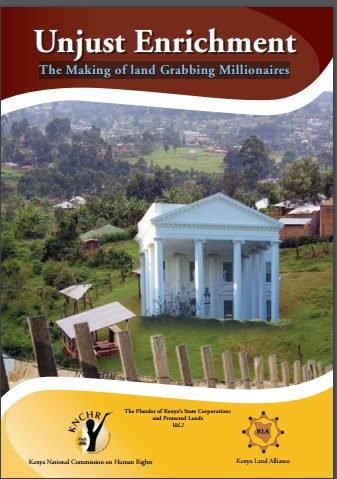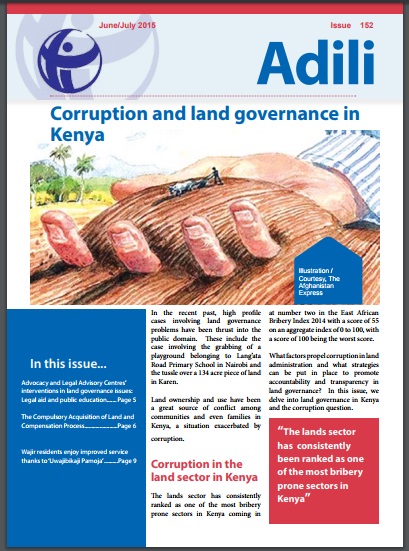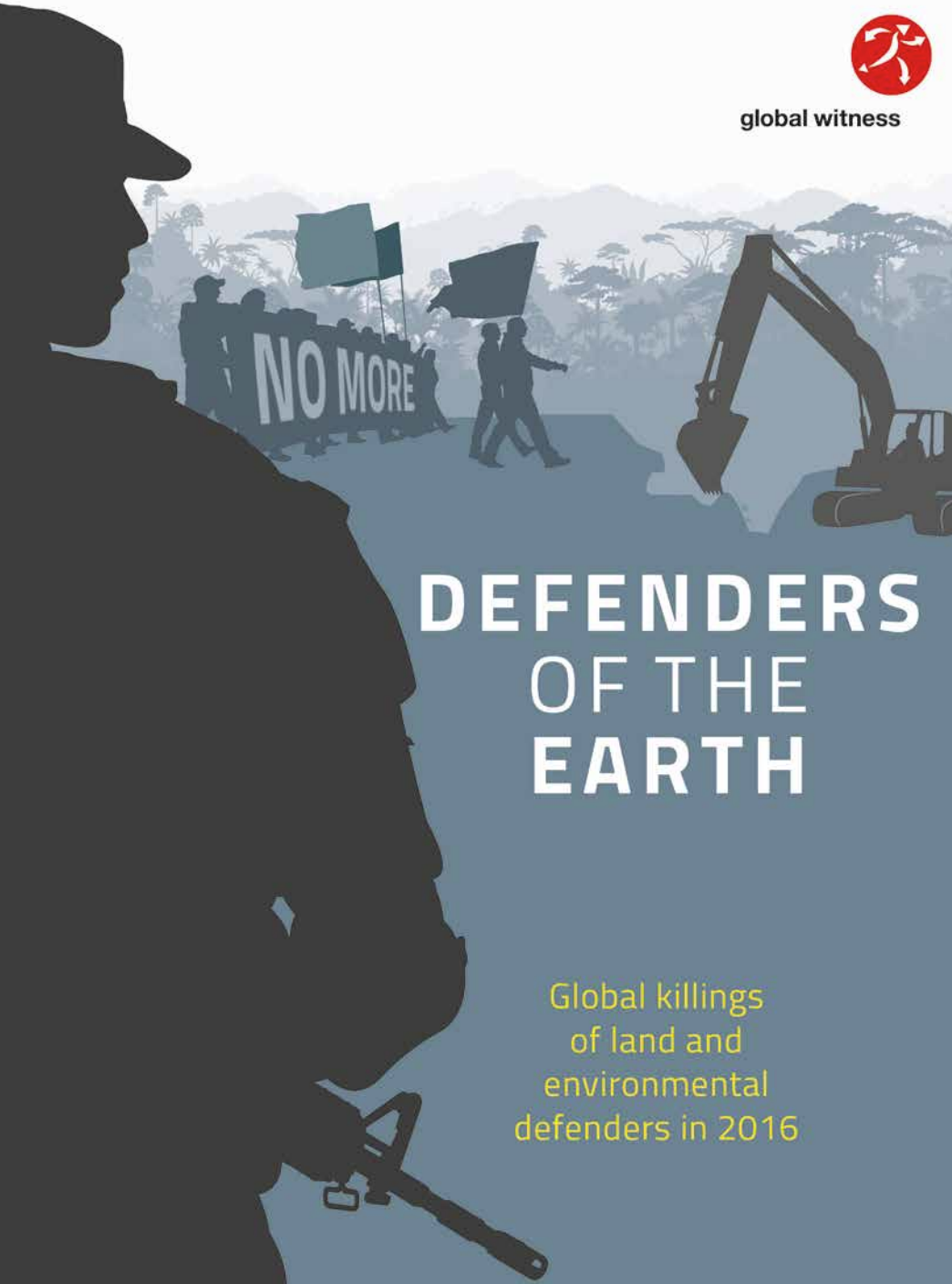Unjust Enrichment
Illegal and irregular allocations of public land were a common feature of the Moi regime and perhaps it’s most pervasive corrupt practice. The Ndung’u Report as well as various reports of the Public Investment Committee details numerous cases of public land illegal allocated to individuals and companies in total disregard of the law and public interest. Most allocations were made to politically correct individuals without justification and resulted in individuals being unjustly enriched at great cost to the people of Kenya.




